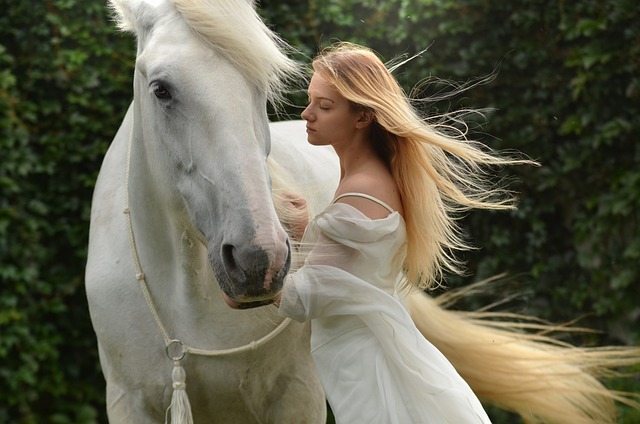Spis Treści
Who Runs the World Horse?
When it comes to the question of who runs the world horse, there are several aspects to consider. From the historical significance of horses to their role in various industries, this article aims to provide a comprehensive understanding of the topic. So, let’s delve into the world of horses and explore who truly holds the reins.
The Historical Significance of Horses
Horses have played a crucial role in human history, shaping civilizations and revolutionizing transportation, warfare, and agriculture. Here are some key points highlighting the historical significance of horses:
- Horses were first domesticated around 4000 BC, marking a significant milestone in human-animal relationships.
- Ancient civilizations, such as the Egyptians, Greeks, and Romans, revered horses and incorporated them into their mythology and daily life.
- Horses enabled the development of trade routes, facilitating cultural exchange and economic growth.
- In warfare, horses provided speed, mobility, and strength, making cavalry units a formidable force throughout history.
- During the Industrial Revolution, horses powered early forms of transportation, such as carriages and wagons.
The Role of Horses in Modern Society
While the advent of modern technology has diminished the horse’s practical significance in some areas, they continue to play vital roles in various industries and recreational activities. Let’s explore the different domains where horses still hold sway:
1. Equestrian Sports
Horses have long been associated with sports and recreational activities. Equestrian sports encompass a wide range of disciplines, including:
- Dressage: Known as “horse ballet,” dressage showcases the horse’s elegance, obedience, and precision.
- Show Jumping: This discipline tests the horse’s ability to clear obstacles in a timed event, emphasizing agility and athleticism.
- Eventing: Combining dressage, cross-country, and show jumping, eventing is a comprehensive test of horse and rider across multiple disciplines.
- Endurance Riding: In endurance riding, horses and riders cover long distances, testing their stamina and teamwork.
2. Agriculture and Ranching
Although machinery has largely replaced horses in agriculture, they still play a role in specific farming practices and ranching. Some areas where horses are utilized include:
- Working Horses: In certain regions, horses are employed for tasks like herding livestock, pulling plows, and transporting goods.
- Rodeo and Roping: Horses are integral to traditional rodeo events, such as roping and steer wrestling.
- Mounted Cattle Work: In ranching, horses assist in managing and moving cattle across vast areas of land.
3. Therapy and Rehabilitation
Horses have also found a place in therapeutic settings, aiding individuals with physical, mental, and emotional challenges. This field, known as equine-assisted therapy, encompasses:
- Hippotherapy: The movement of horses is utilized as a therapeutic tool to improve coordination, balance, and muscle strength.
- Therapeutic Riding: Riding and interacting with horses can have profound psychological benefits, promoting confidence, trust, and emotional well-being.
- Equine-Assisted Psychotherapy: Horses are incorporated into counseling sessions to facilitate personal growth, self-reflection, and emotional healing.
The Organizations and Institutions Influencing the Equine World
While horses themselves hold immense power and influence, several organizations and institutions contribute to the governance, promotion, and welfare of horses worldwide. Here are some notable entities:
1. International Federation for Equestrian Sports (FEI)
The FEI is the governing body for equestrian sports on a global scale. It regulates and organizes international competitions, sets standards for horse welfare, and ensures fair play and sportsmanship.
2. National Equestrian Federations
Each country typically has its own National Equestrian Federation, responsible for overseeing equestrian activities within its jurisdiction. These federations work in collaboration with the FEI to promote the sport and regulate national competitions.
3. Veterinary Associations and Organizations
Veterinary associations and organizations play a crucial role in ensuring the health and well-being of horses. They provide guidelines, research, and support to veterinarians, horse owners, and other stakeholders in the equine industry.
4. Breed Associations
Breed associations focus on specific horse breeds, maintaining breed standards, registering horses, and promoting breed-specific activities. These associations often organize shows, competitions, and breed-specific events.
5. Animal Welfare Organizations
Various animal welfare organizations advocate for the ethical treatment of horses and work to prevent abuse, neglect, and exploitation. They play a vital role in raising awareness, lobbying for legislation, and providing rescue and rehabilitation services.
Conclusion
From their historical significance to their continued presence in various industries and recreational pursuits, horses undeniably hold a significant place in the world. Whether it’s the thrill of equestrian sports, the practicality of agricultural work, or the therapeutic benefits they offer, horses continue to captivate and inspire. While the question of who truly runs the world horse may not have a definitive answer, it is clear that horses have left an indelible hoofprint on human civilization.


















